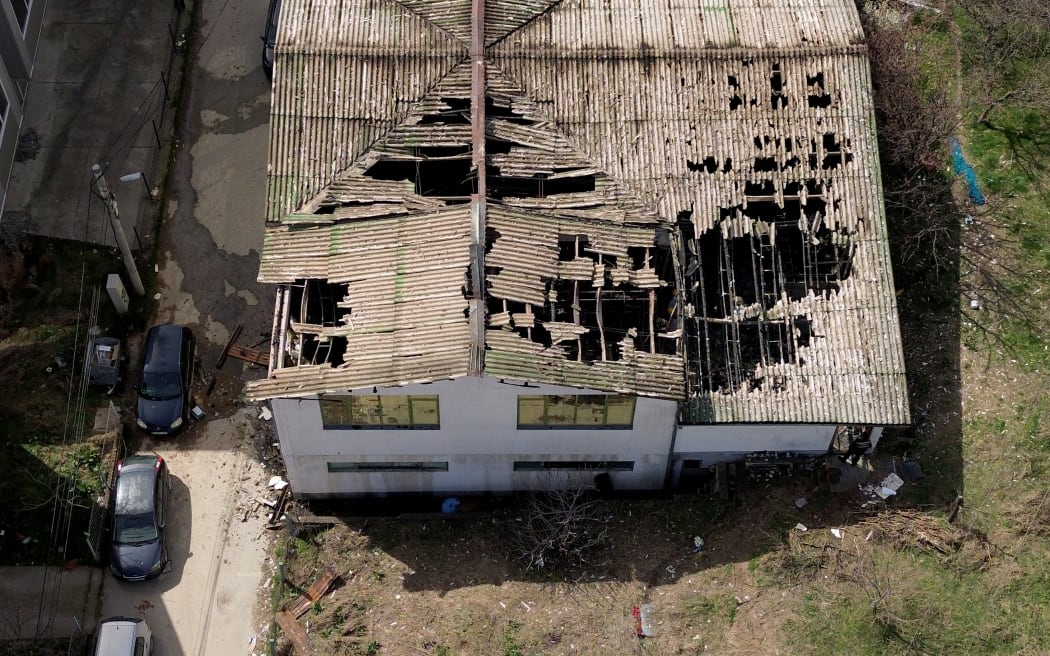
Domestic abusers and sex offenders will be ‘locked in’ to specific restrictions zones to keep them away from victims when they are released from prison, under a new law.
Until now, exclusion zones have prevented offenders from going where their victims live.
But many survivors – and their families – have been left feeling like prisoners in their own home, limiting themselves to that small area through fear of bumping into perpetrators.
The new plans shifting that responsibility onto perpetrators by placing more restrictions on their movements have been welcomed by campaigners.
Diana Parkes CBE and Hetti Barkworth-Nanton CBE, co-founders of the Joanna Simpson Foundation, said: ‘For far too long, victims have had to reshape their lives to avoid their offenders.
‘Exclusion zones have made victims feel trapped as though they are the ones serving a sentence, with the victim carrying the weight of someone else’s crime.
‘This announcement from the Ministry of Justice is the much-needed change that has long been called for and is a powerful step forward.
‘By placing restrictions on offenders instead, this will now give survivors the freedom they deserve to live, move and heal without fear.
‘It will also be more cost-effective for those monitoring the perpetuators as they will be locked in specific areas rather than having to monitor the exclusion zones where the victims live.’
Emma King, whose sister Julie Butcher was murdered by her ex-husband in 2005, said her family has been ‘directly impacted by the current system’.

This Is Not Right

On November 25, 2024 Metro launched This Is Not Right, a year-long campaign to address the relentless epidemic of violence against women.
With the help of our partners at Women’s Aid, This Is Not Right aims to shine a light on the sheer scale of this national emergency.
You can find more articles here, and if you want to share your story with us, you can send us an email at vaw@metro.co.uk.
Read more:
While the change has come ‘too late for us — and for many other victims, survivors, and families’, she welcomed the ‘long overdue change’.
‘This is a vital and significant step forward in shifting the burden of control away from victims and placing it where it belongs — on offenders,’ Ms King said.
‘For the first time, the justice system is taking a decisive stand: instead of victims being forced to uproot their lives to stay safe, the most serious sexual and violent offenders will now face strict boundaries that limit their freedom.
‘This change empowers survivors to reclaim their lives, rebuild with dignity, and feel safer in their own communities.
‘It also sends a clear message: protection and justice are for victims – not a privilege for those who have caused harm.’
For the new restriction zones, probation officers will work with survivors to decide on banned locations for perpetrators, and will carry out detailed risk assessments.
What to do if you're experiencing domestic abuse
If you are experiencing domestic abuse, you are not alone. And whether you are currently coping with or have made the decision to leave, you do have options.
- If you are thinking about leaving, domestic abuse charity Refuge suggests starting a record of abusive incidents, which might include saving pictures or messages, or making notes of times, dates and details of incidents.
- The next step is to make copies of important documents such as court orders, marriage certificates, National Insurance Numbers and your driving licence.
- In the meantime, identify the safer areas of your home so that you know where to go if your abuser becomes aggravated. Ideally, this should be a room with a phone and a door or window to the outside.
- If you feel ready to leave, start by making a plan for a safe, reliable route out. If you feel safe to do so, pack an emergency bag so that you leave in a hurry if needed.
- You can access a local refuge, either with or without children, for as long as you need to stay. The address is confidential. The National Domestic Abuse Helpline (0808 2000 247) is open 24-hours a day and has all the details of refuges in your area.
- In an emergency situation, ring 999 and ask for the police. If you aren’t able to talk, try the Silent Solution: after dialling 999, listen to the questions from the operator and respond by coughing or tapping your device, if possible. If prompted, press 55 to let the operator know it’s an emergency – you’ll be put through to the police.
Read more here.
Justice minister Alex Davies-Jones announced the new measure at charity Advance in London on Friday.
The victims minister said perpetrators will be GPS monitored to have real-time data about where they are going, and will be subject to ‘virtual boundaries’ which if breached could mean they go to prison.
She said: ‘We’re putting really strong safeguards attached to these so that we can give victims and survivors the confidence to carry on with their everyday lives.
‘We’re going to be outlining more details on this as well as we’re bringing in the legislation in the autumn.’
Speaking at one of Advance’s women’s centres, director Amy Glover said the domestic abuse charity wants to see what the monitoring processes are, and how quickly a probation officer would intervene if a perpetrator was breaching conditions or doing something unsafe.
‘What we can sometimes find when new safety measures are introduced for victim survivors, if they don’t work all the time, then they can actually create a false sense of security,’ she said.
‘So we’re just really interested to hear a bit more about how they will be rolled out and how we can ensure they’re working effectively.’
But of the measure, she added the reaction is ‘largely positive’ as it flips the current responsibility on survivors to perpetrators.
‘The aim of these restriction zones, which we really welcome, is to flip that so now he may have a smaller area of movement. She is able to go about her daily life more,’ she added.
Get in touch with our news team by emailing us at webnews@metro.co.uk.
For more stories like this, check our news page.



